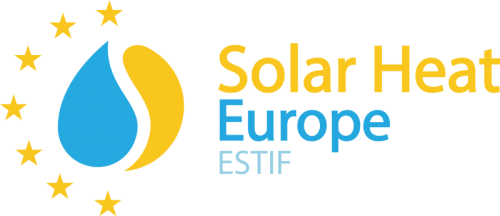Brussels, 14 March 2024 – 18 European organisations released a call to action urging the European Commission and Member States to prioritise heating and cooling decarbonisation in the upcoming legislative mandate.
Released on 6 February 2024, the 2040 Communication rightly identified the significant CO2 abatement potential of the building and industrial sectors, which represent respectively 42% and 25,6% of the EU final energy consumption and remain heavily dependent on fossil-fuel use. However, the undersigned organisations deplored the glaring omission of heating and cooling demands, which represent 80% of buildings’ energy consumption and 60% of industries’ total energy needs.
The coalition composed of industry associations and NGOs calls for immediate action to phase out fossil fuels in heating and cooling, accelerate building renovations, and tap into the EU’s vast potential for renewable and recovered heat sources.
This call for action builds on the momentum from May 2023, when 11 energy organisations presented a dedicated heating and cooling decarbonisation plan to the European Commission.
Valérie Séjourné, Managing Director at Solar Heat Europe, said: “Delivering the 2040 targets will require a more prominent role of renewable heat sources. The solar thermal sector is well placed to actively contribute to the 90% CO2 emissions reduction target with its EU-made and ready-to-deploy products supplying resilient, affordable, reliable heat for buildings and industries across Europe”.
Aurélie Beauvais, Managing Director at Euroheat & Power said: “Achieving our 2040 climate target and protecting EU citizens from soaring energy prices are two sides of the same coin: it requires a paradigm shift to accelerate heating and cooling decarbonisation. It is high time for the EU to take off its blinkers and tackle this issue head-on. Luckily, the bottlenecks are mostly political: clean heat technologies such as efficient district heating and cooling are mature, made in Europe, and ready to be scaled-up!”
Bertrand Piccard, President of the Solar Impulse Foundation, said: “Heat is half of the energy consumption in Europe, as well as the main driver of expensive fossil fuel imports, with obvious implications in terms of energy security, competitiveness, and pollution. Modernising this sector must become a priority and will lead to much- needed economic and social benefits, while decarbonisation will come out of it as a positive consequence.”
Justin Wilkes, Executive Director of ECOS – Environmental Coalition on Standards, said: “Phasing out installations of new boilers that use fossil fuels cannot be avoided – and the transition to renewables must happen at pace for both environmental and economic reasons. This is the only way heating and cooling, an enormous source of emissions, can contribute meaningfully to climate targets. The 90% greenhouse gas reduction by 2040 target makes urgent decarbonisation of heating and cooling a must.”
Russell Patten, Director General at the European Partnership for Energy and the Environment, said: “Our industry manufactures highly efficient heat pumps, air conditioning and refrigeration equipment that will lead to the EU’s decarbonisation. We stand ready to support this vital transition, delivering clean heating and cooling to schools, hospitals, homes and offices across the continent.”
Jean-Marc Jossart, Secretary General at Bioenergy Europe, said: “To deliver on the 2040 target we need to boost renewables and de-fossilize our energy system. The EU should have a strong strategy to phase out fossil fuels. De- fossilizing the heating sector, which represents almost half of the EU’s energy consumption, is key to delivering the energy transition. Today, sustainable bioenergy is the main source of renewable energy in Europe, especially for heating (55.7% of all renewables and 83,6% of all renewable heating).”
Giulia Laura Cancian, Secretary General at European Biogas Association, said: “The 2040 Climate Plan represents a clear and necessary response to the ongoing climate crisis and the biogas and biomethane sectors are ready to significantly contribute to the EU’s decarbonisation. The 2040 target serves as a pivotal point to craft an actionable roadmap towards emissions reduction, with biogases playing a pivotal role as a cost-effective and readily accessible solution. Attainable targets lie within our grasp if we accelerate action and streamline bureaucratic processes.”
Hans Korteweg, Secretary General at COGEN Europe, said: “To reach net-zero emissions in the energy sector between 2040 and 2050, the EU must prioritise the heating and cooling sector and accelerate investments in energy efficiency and renewable energy, including high efficiency cogeneration. This can only be achieved by adopting an integrated approach to energy systems at local level across all energy vectors, fostering affordable and secure energy for European consumers, industry and small businesses.”


Leave a Reply